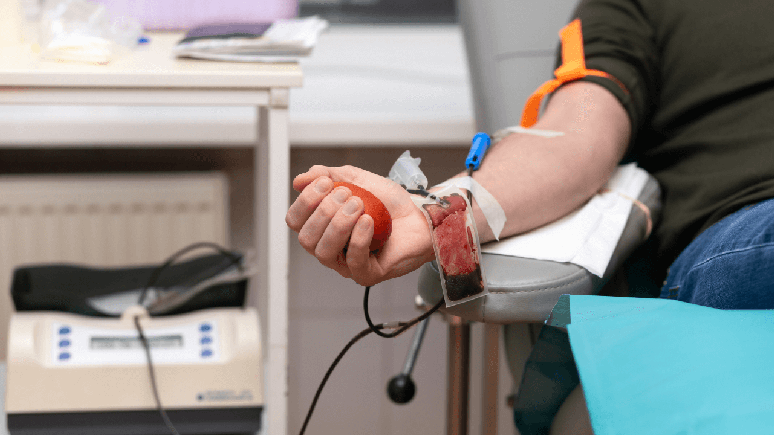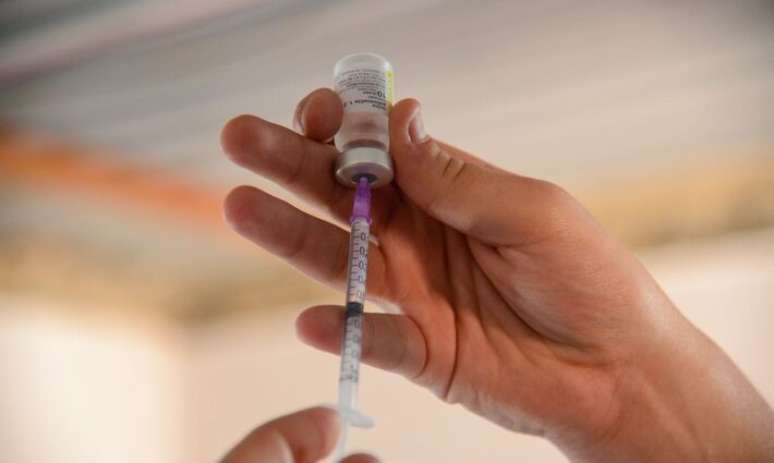The month of November aims to raise awareness and encourage voluntary donations, which can save up to four lives
The month of November is dedicated to promoting blood donation as a regular and fundamental action to save human lives. In this way, the campaigns try to encourage collective thought and solidarity commitment to public health. This is because it is necessary to maintain blood supplies at correct levels, as there is no substitute for the component.
According to the Ministry of Health, only 1.5% of the Brazilian population donates blood periodically. Therefore, blood banks very often operate at the limit. A survey conducted by global healthcare company Abbott revealed that in 2021, approximately 48% of Brazilians aged 16 to 64 are not regular donors. This reality is alarming and reinforces the importance of raising awareness of the relevance of the act.
How blood donation takes place
In cases of whole blood sampling, the 450 ml of blood of donors, a process that takes on average 12 minutes. The collected blood is subjected to centrifugation, responsible for the separation of its main components, divided into red blood cells, platelets and plasma. Donation is free and can help save up to four lives.
While red blood cells are used to treat anemia and acute hemorrhages, platelets help in cancer treatments and hematological diseases. Finally, plasma can be used in patients with clotting disorders. In this way, in addition to conventional donations, it is possible to allocate the elements specific cases.
Criteria for donating blood
- Age range: 16 and 69 years old, so minors under 18 years of age require the formal consent of their legal guardian, and people between the ages of 60 and 69 can donate only if they have already done so before the age of 60
- Document: Before donating you must present a photo ID issued by an official body
- Weight: the minimum mass for donation is 50 kg
- Sleep: sleeping at least 6 hours in the last 24 hours is essential
- Food: The recommendation is to eat well and avoid consuming foods rich in fat at least 3 hours before donation.
According to data from the Ministry of Health, 2,516,237 donations were made in the country until September. Currently, the country has 32 state blood transfusion centers, in addition to regional and municipal blood therapy services. These are responsible for the collection, processing, storage and distribution of blood and its components.
Post-blood donation assistance
- Stay in the donation area for at least 15 minutes
- Drink plenty of fluids within 24 hours of donating
- Do not drink alcoholic beverages for the next 24 hours
- Avoid excessive physical exertion within 12 hours of donating
- Do not drive heavy or public vehicles
- If you are donating for the first time, do not ride motorcycles
Interval between donations
Although donating is a regular action, there is a necessary interval between donations. TO womenthe action can be carried out up to three times a year, with a minimum interval of 90 days among donations. Already the men you can donate up to four times within 12 months, respecting the minimum interval of 60 days among donations.
Source: Terra
Ben Stock is a lifestyle journalist and author at Gossipify. He writes about topics such as health, wellness, travel, food and home decor. He provides practical advice and inspiration to improve well-being, keeps readers up to date with latest lifestyle news and trends, known for his engaging writing style, in-depth analysis and unique perspectives.






![Such an excellent sun in advance: Sohan with complete mess … that awaits you in the week from 14 to July 18, 2025 [SPOILERS] Such an excellent sun in advance: Sohan with complete mess … that awaits you in the week from 14 to July 18, 2025 [SPOILERS]](https://fr.web.img3.acsta.net/img/56/a2/56a246f27b76b1d00145528e89927ed7.jpg)


